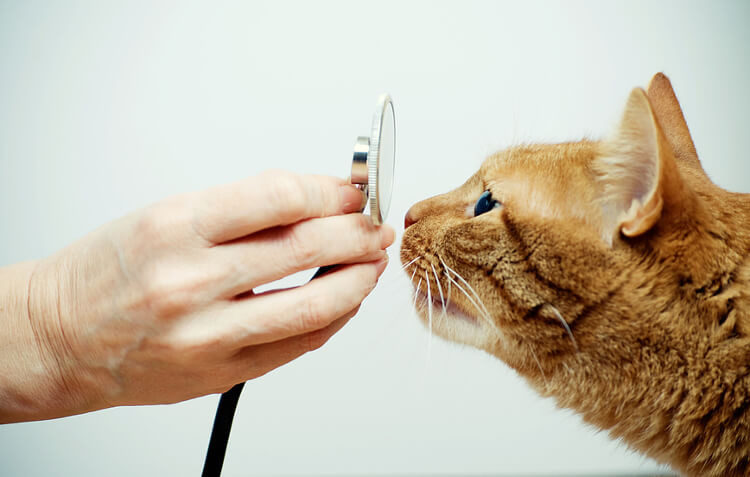Does your cat have asthma? Yes, you read that right! Feline asthma, as we call it, is a very common respiratory disease in cats. It is caused by inflammation of the lower airways (bronchi and bronchioles) as a result of inhaling an irritant substance, which can be tobacco smoke, pollen, dust, environmental pollution, cleaning products, dust mites, molds, etc.
In the presence of the irritant, the bronchus will contract to prevent it from reaching the lung. It will also produce mucus to surround the substance so that the coughing cat can cough it up. Because of the narrowing of the bronchial tubes and the inflammation, the airways will become thinner and the cat will have difficulty breathing. This disease usually appears in young animals and, over time, it usually becomes chronic and worsens.
Symptoms of Feline Asthma
– Dyspnea or shortness of breath. In this case, it affects more the expiration than the inspiration.
– Very intense coughing, which can go as far as vomiting. You’ll recognize this type of cough because it sounds like the cat has swallowed a foreign object, is choking, and is trying to expel it.
– Rapid, shallow breathing. This occurs because in the absence of oxygen, the cat tries to breathe as it is. In severe stages, the cat will breathe with its mouth open because the air that enters through the nose is not enough.
– Wheezing or high-pitched noise as air passes through the bronchial tubes, which have narrowed when inflamed and produce mucus.
– Mucous membranes turn purple due to lack of oxygenation.
– Exercise intolerance. In the absence of oxygen, the cat will avoid moving and because not enough oxygen will reach the lungs, it will lack energy. With little physical activity, it will look very tired.
All of these symptoms are clear signs of feline asthma, so if we see them in our kitten, we need to get to the veterinary clinic as soon as possible. An asthmatic cat can lead a perfectly normal life if treated in time, otherwise there will be a deterioration of the respiratory system.
Below, we tell you more about this respiratory disease, its causes, the diagnostic tests, and the different treatments that exist.
It is important to note that any cat can suffer from asthma, but it is more common in young cats.
Tests That Exist for Feline Asthma
Bone Scanning
After the veterinarian’s examination, it is usually recommended to perform a chest X-ray to determine whether or not there are typical asthma changes.
Blood Test
An elevated eosinophil count in the blood may indicate an allergic condition.
Stool Analysis
Stool analysis may reveal the existence of parasites, as some give rise to respiratory manifestations similar to those of asthma.
Bronchoalveolar Lavage
Serum is injected into the airways and collected with cells detached from the respiratory tract, which are analyzed.
Emergency
If when the cat is brought to the clinic, the animal is barely breathing, the veterinarian will proceed to stabilize it. The first thing to do will be to oxygenate the cat, either with a mask or by introducing it into an oxygen chamber. Bronchodilators and corticosteroids will also be prescribed to open the airways as much as possible and allow the cat to receive oxygen.
Nerves Make Asthma Worse
When cats have asthma, they may feel overwhelmed by the inability to breathe. This can cause a great deal of nervousness, which will make the cat’s breathing worse, a vicious cycle that the veterinarian will break by sedating the animal.
Individualized Treatment
Once the asthma is diagnosed, the veterinarian will prescribe a treatment that will depend on the age of the cat, its size, the existence of another joint pathology such as a cardiac process, its behavior (some kittens are very difficult to treat or to put on the mask to inhale), the time that the owner has to devote to his animal…
What Does the Treatment Consist Of?
The home treatment will be based on inhalers to open the airways and others to reduce the inflammation. The veterinarian will be in charge of your prescription.
Asthma treatments are usually lifelong but there will be periods of time when the medication is needed and periods of time when it can be withdrawn. These decisions should always be supervised by the veterinarian.
If you suspect your cat suffers from asthma, we recommend an immediate consultation with the veterinarian. Have you learned about another health problem your pet may have that you didn’t know about? Tell us in the comments below!
